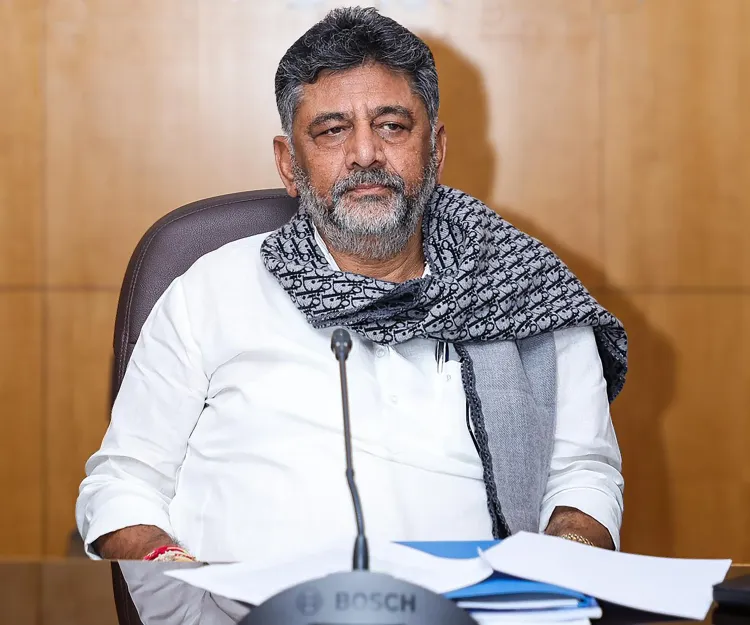Why Did the K'taka Government Instruct BMRCL to Allow Nandini Kiosks at Metro Stations?

Synopsis
Key Takeaways
- The Karnataka government is allowing Nandini kiosks at Metro stations.
- Controversy arises over the competition between state and national brands.
- Existing Amul kiosks will remain operational.
- The initiative aims to boost local dairy products.
- Political groups are divided on the implications of this decision.
Bengaluru, June 18 (NationPress) The Congress government has declared that it has directed the Bengaluru Metropolitan Rail Corporation Limited (BMRCL) to allow the establishment of Nandini milk kiosks at designated Metro stations in the capital city that were initially designated for Amul.
This decision is expected to spark a debate.
Deputy Chief Minister D.K. Shivakumar, who also serves as the Bengaluru Development Minister, has indicated that the Karnataka Milk Federation (KMF) has been tasked with applying to the BMRCL to set up outlets at metro stations. He has also instructed Metro officials to allow Nandini outlets at eight out of the ten proposed locations.
When queried by the media near his official residence, Shivakumar addressed the issue of Amul's presence at Metro stations. He remarked, “BMRCL had invited tenders, but aside from Amul, no other organizations submitted bids. KMF had also not applied. We have now mandated KMF to submit an application. Out of the ten locations for which tenders were sought, Amul has applied in the global tender and established outlets at two locations.”
“It would be inappropriate to close the Amul outlets that are currently operational. I have instructed that KMF should be allowed to set up outlets at the remaining eight locations,” Shivakumar added.
BMRCL had entered into a licensing agreement with M/s Gujarat Co-operative Milk Marketing Federation Limited, commonly known as Amul, to establish ‘Amul Retail Kiosks’ at ten Metro stations in Bengaluru.
The Amul kiosks are set to be located at Pattandur Agrahara, Indiranagar, Benniganahalli, Biyappanahalli, Trinity Junction, Sir M Visveswaraya, Nadaprabhu Kempe Gowda Station Majestic, National College, Jayanagar, and Banashankari.
The announcement indicated that these kiosks will offer a comprehensive range of Amul’s dairy products, including chocolate, potato-based snacks, organic products, and oil.
“Now, Metro commuters can purchase milk, chocolates, ice cream, instant food items, and snacks of their choice. This initiative aims to enhance commuter convenience by providing access to trusted dairy products within the Metro premises,” the statement read.
The JD(S) and Kannada activists have voiced objections to the establishment of Amul kiosks at Metro stations, arguing that Karnataka has its own brand, Nandini. The JD(S) claimed that Deputy Chief Minister Shivakumar had compromised his integrity for commission by allowing the Amul kiosks.
The JD(S) has further asserted that they will initiate a protest if Nandini’s interests are jeopardized in favor of companies from other states. “The Congress-led government has failed to create a market for Nandini products and safeguard its interests,” the JD(S) asserted.
Kannada activists are demanding that the state government rescind the permission given to Amul kiosks and instead prioritize Nandini kiosks.





